Hearts of UN
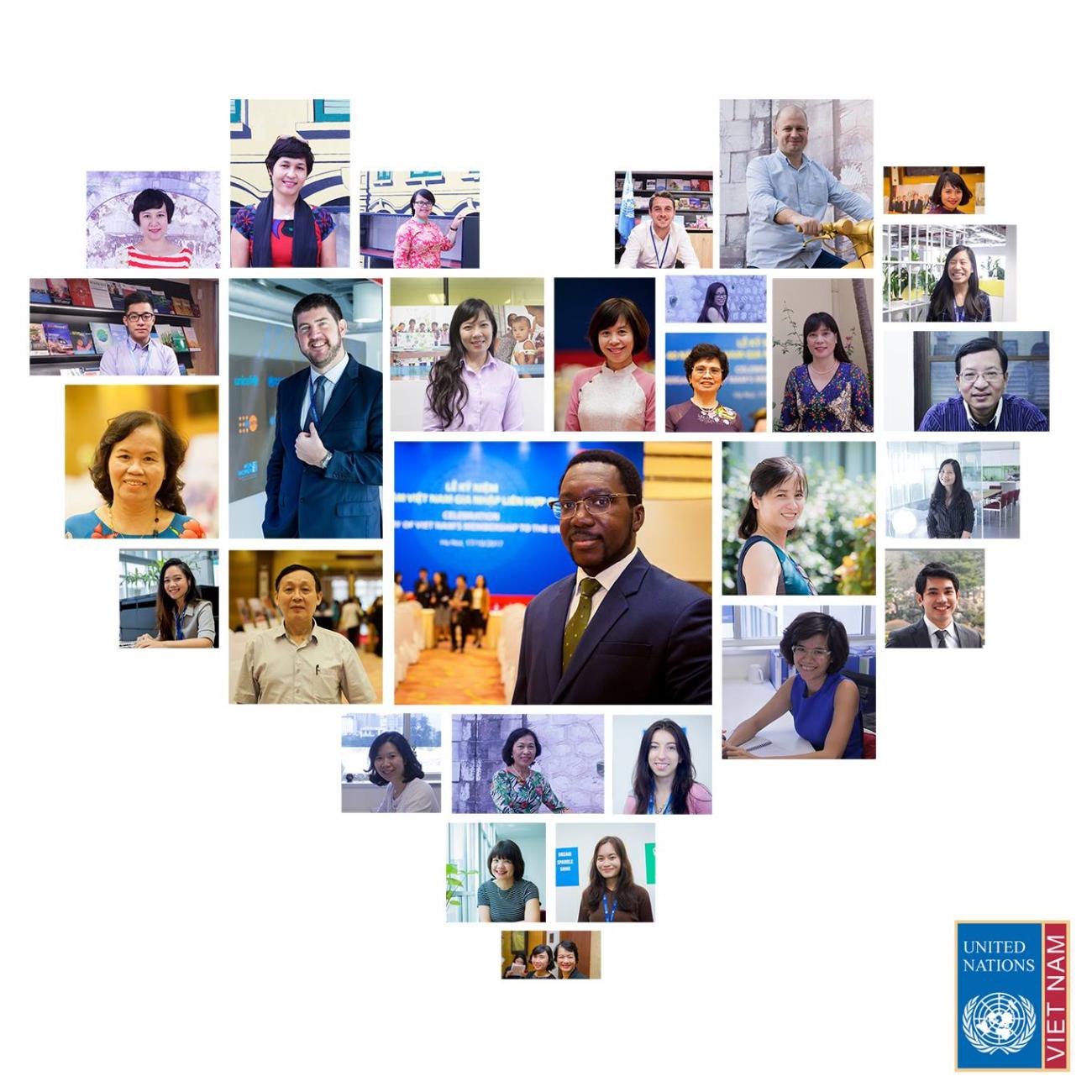
"If you want to go fast, go alone. If you want to go far, go together".
Over the past 40 years contributing to Viet Nam’s growth, the UN could not have been efficient without the collaboration of UN's agencies and, especially, the commitment of its human factors. Annually, October 25th is chosen to be UN Staff's Day to appreciate the dedication of UN staff all over the world.
Inspired by Humans of New York, "HEARTS OF UN" is a sincere gratitude towards every person who works in Green One UN House and brings the UN closer to the community. Each person represents a unique piece yet shares the same aspiration of contributing to a better world. Let's explore their stories in the picture of One United Nations.
Trần Thị Vân, UNFPA Viet Nam Veteran
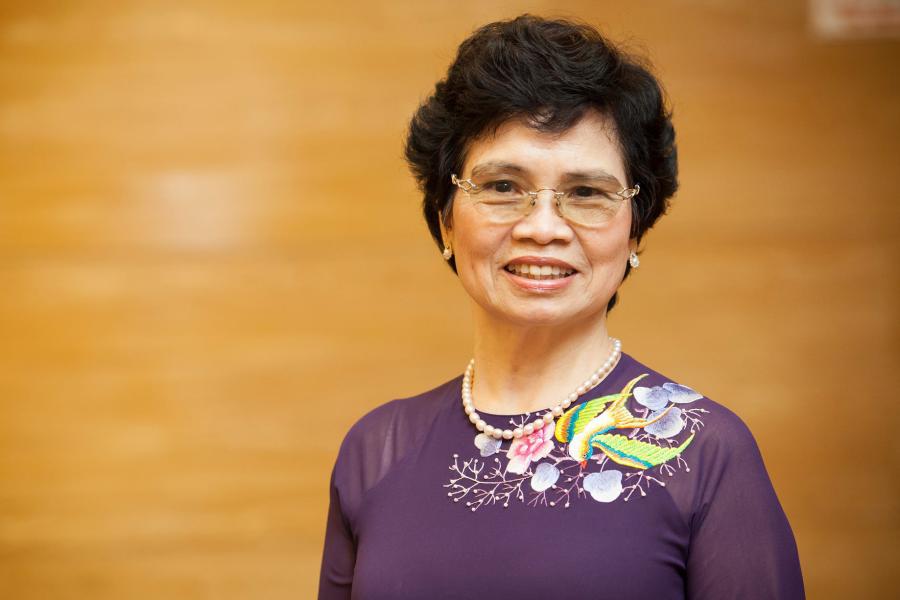
When I first worked for the UN, I found the job quite unfamiliar because everything was new to me. Ms. Sheila Macrae, our Representative, was the person who encouraged me to work in UNFPA. During that period, I lacked confidence and felt worried whether my capacity was suitable or not, yet Ms. Sheila convinced me by saying: “You can do it”. After time, I had more faith in her words; because not only did UN work inspire me but it also offered me capacity building opportunities, enabling my leadership skill to blossom. To me, leadership means one should always be proactive, innovative, self-driven to achieve one's goals and know how to inspire others. The trainings I received, together with self leadership, empower me to be more helpful towards Vietnamese people, and to work more effectively in the UN.
Ace Victor Aceron – Former, Monitoring, Reporting and Evaluation Officer at UNESCO Viet Nam
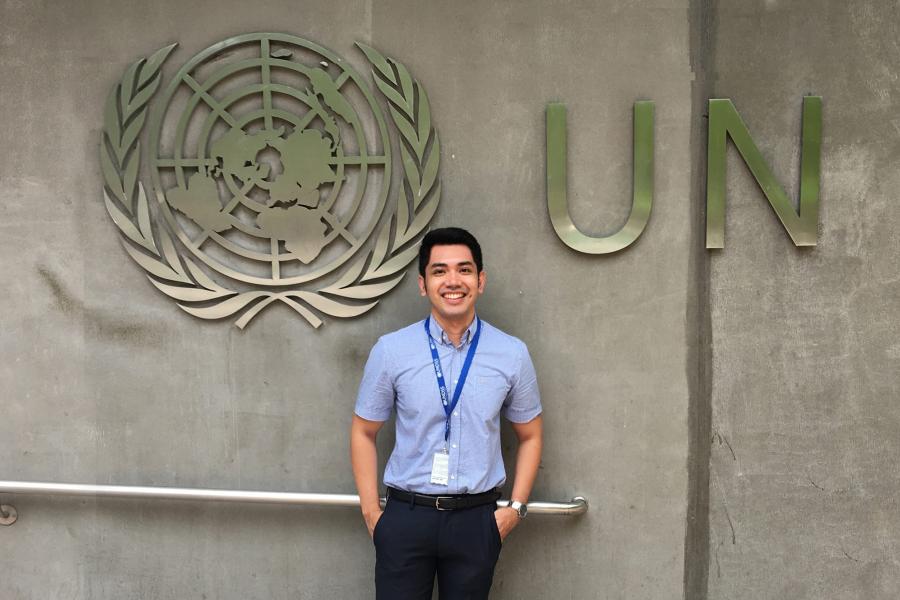
It’s the project about “futures literacy” that I remember the most. I was part of the team who pioneered futures thinking to youth and educators in Asia-Pacific. The goal of which is to build the capacity of people to “use the future” for sustainable development, where they learn to embrace uncertainty and discover alternative solutions to problems that concern them. Every time we facilitate workshops, I’m fueled by my passion because I was working as a teacher before and until now the profession is very close to my heart. I’m proud that I’m still able to keep practicing education and combine it with my different roles in UNESCO. Working in UNESCO allows me to discover myself and appreciate the journey. I think it’s very important to know yourself. Identify where you’re good at and use that in order to make a difference. You should know your weaknesses as well, not to be ashamed of them, but to take them as opportunities for growth.
Lê Thị Lâm Ngà – Operation Manager at ILO Viet Nam
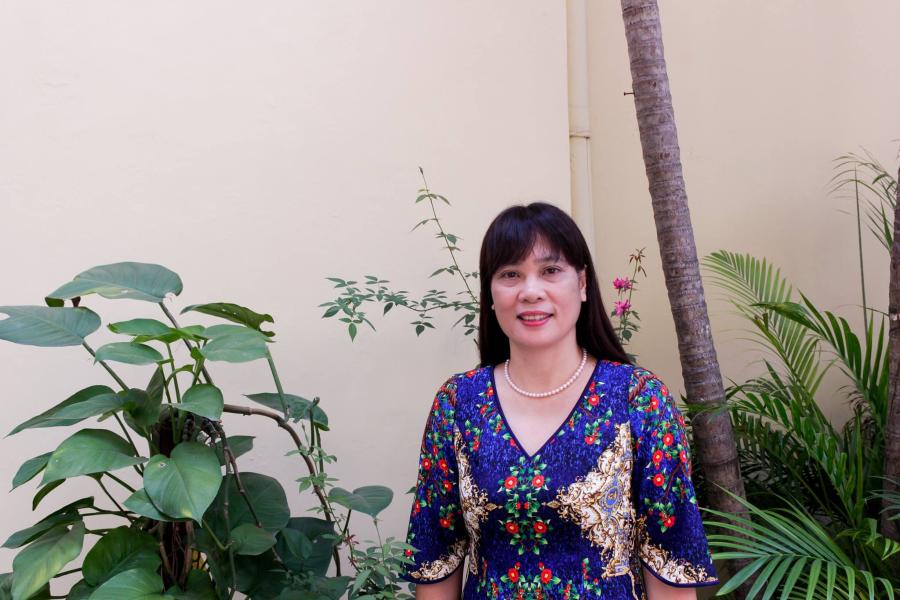
In 2001, when I was a secretary for the first Director of ILO Hanoi, people approached me to ask if ILO was an organization of Palestine as they first heard about the ILO and also did not know what ILO was doing in Viet Nam. I was trying to explain to them about the ILO’s mandate and objectives, its tripartite structure and activities in Vietnam. I also provided them ILO Website in case they wished to study more about the ILO. In 2003, when the Office was officially opened, I got a phone call from the same people and they told me that they wished to have an invitation to come for the ILO official launch in Hanoi as they were very interested in ILO’s Works in Vietnam. They mentioned to me that they knew ILO is “DECENT WORK FOR ALL” and “TRIPATISM”. Later they become ILO’s partners. Whenever we meet, we still talk about this unforgettable memory. (smile)
Louis Vigneault-Dubois - Chief of Communication and Advocacy at UNICEF Viet Nam
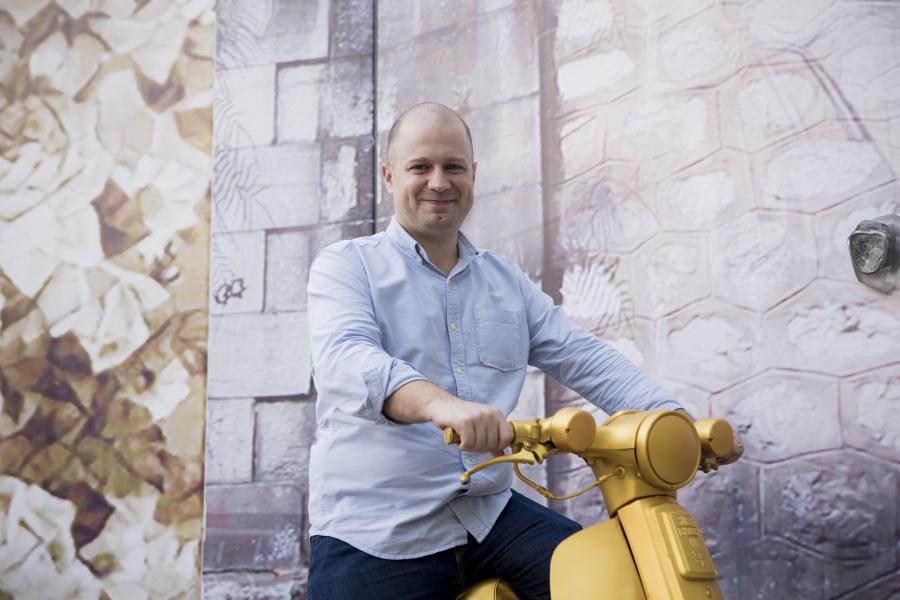
Language is the most challenging barrier, especially in communication as most of the work happens in Vietnamese. It’s been limiting my capacity to interact with people here so I need to rely on my colleagues. I think one of the most fundamental principles as a leader is to trust the people that you work with, trust their capacity and trust their commitment to do the work that they are assigned to. My co-workers at UNICEF are always very supportive.
Nicholas Booth - former Policy Advisor for Rule of Law and Access to Justice of UNDP Viet Nam
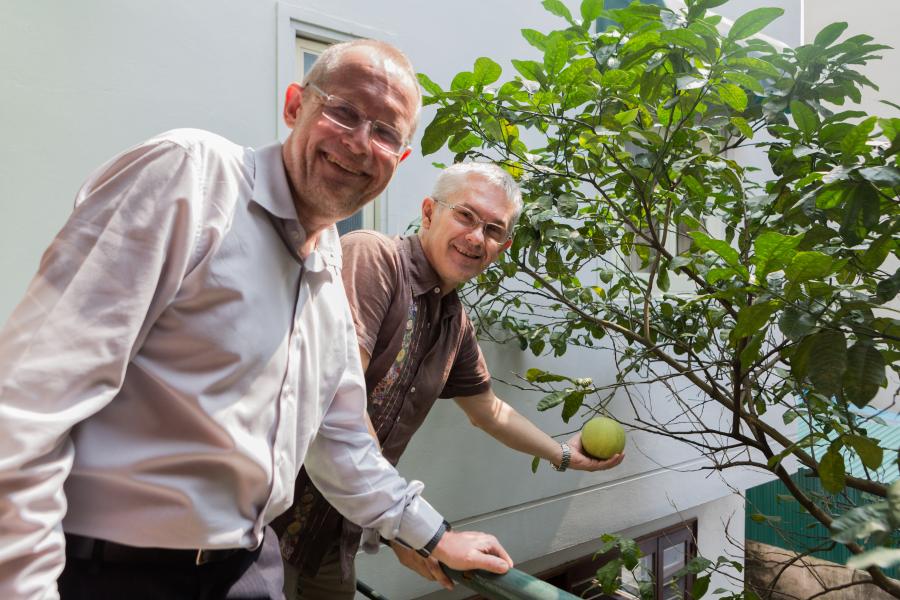
I got married in 2007. We started to think about it a few years before, when the UK first allowed gay couples to register. There were so many details we weren’t sure about. We had never worn rings and we asked ourselves: “How do we know what size to buy? Who gives the ring to the other person? Who proposes when we’re both men?” Then one day, we planned a trip to Venice for New Year’s and I asked my best friend to help me to buy a ring for me to propose to my boyfriend. What I didn’t know is that my boyfriend also asked the same guy to do the same thing. Our friend couldn’t tell either of us so it was difficult for him. And then we were in Venice on a boat going past a beautiful church and my boyfriend said: “There’s so many people here, let’s go to the back. It is much nicer.” Then, he suddenly dropped down his knee, produced a beautiful white gold ring with his name engraved on it, and he proposed to me: “Will you be my life partner?” Then we moved to Viet Nam together and I started working in UNDP.
I think the most powerful UN statement is the first article of the Universal Declaration of Human Rights, and this still actually moves me when I say it: “All human beings are born free and equal in dignity and rights”. That reference to dignity is the thing I love so much, because it underlines the equal respect which we are all owed as people, and I think that has a special meaning for everybody who grows up gay and people treat you as though something is wrong with you, as though there’s some pills you can take, maybe you can take hormones, or go to a psychiatrist – not so long ago they even used electric shocks to try to ‘cure’ us. That’s why it was so significant to me when my country, the UK, gave me the right to marry the man I love – finally, I felt that my love, my relationships, my identity is treated as valuable and worthy of respect. Maybe no one was thinking about LGBTI when they drafted the Universal Declaration of Human Rights, but its words are so powerful that they can be meaningful even in ways the founders didn’t think about. And that’s why I’m proud to work for the UN and to take part in the struggle to make its values a reality for all of us.
Nguyen Thi Thuy, National Programme Officer – Governance, UN Women Viet Nam
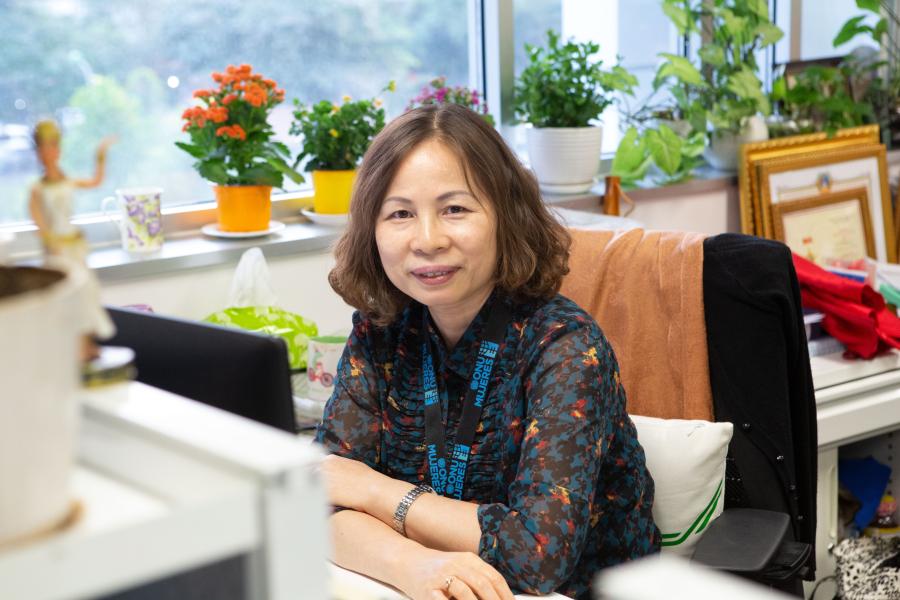
I am proud of being part of UN Women in Viet Nam. The work has allowed me to contribute to challenge social norms and advocate for policy changes to help women and girls be fully entitled to their rights in the true sense of it.
Nguyen Hoang Ha - International Labor Organization Programme Coordinator
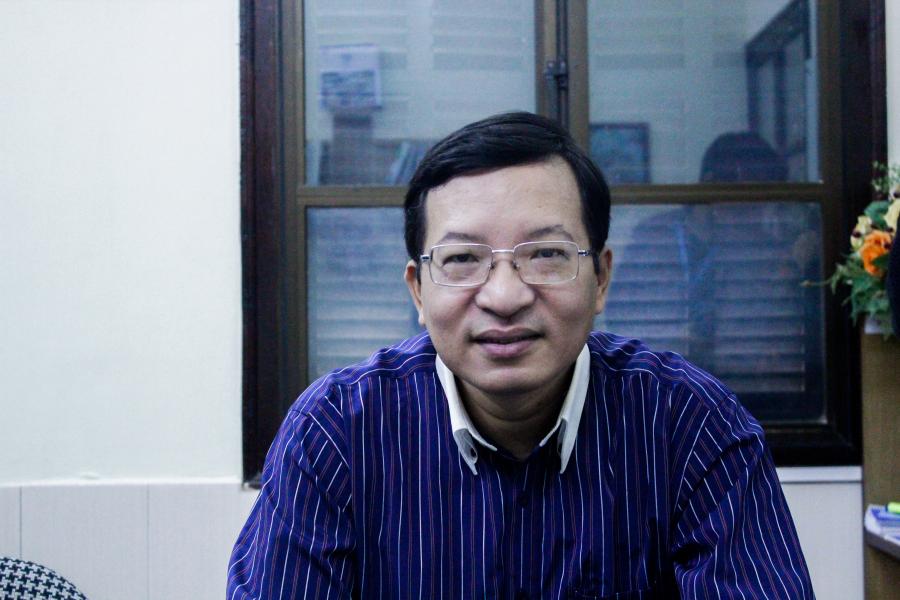
I remember a good memory of the day I was waiting at Ba Dinh Hall for the voting result of the draft Law on Occupational Safety and Health, which took ILO partners over 3 years of formulation, then the law was approved by the National Assembly with more than 88%. When waiting for the result, I felt really nervous, and not only me but also my colleagues in Department of Work Safety, Vice Minister of MOLISA also stuck together through that period. My heart shared the same beats as my partners’ because we had been putting plenty of effort to create the draft law proposal, yet the final result was not defined by us but by Members of the National Assembly. Only when they were convinced would they vote for the proposal. When we received a high approval rate, we got the credibility from the Editing Committee so we felt very happy. At that time I felt so connected with my partners. And because we worked in the technical team; therefore, we were very close. We didn’t have any barrier to communicate; instead, we breathed the same air, and we had candid, straightforward conversations throughout that time. It’s an interesting feeling, and I guess it can be called “fulfillment”.
Wong Hiu Tan (Suzanne), IOM Project Assistant
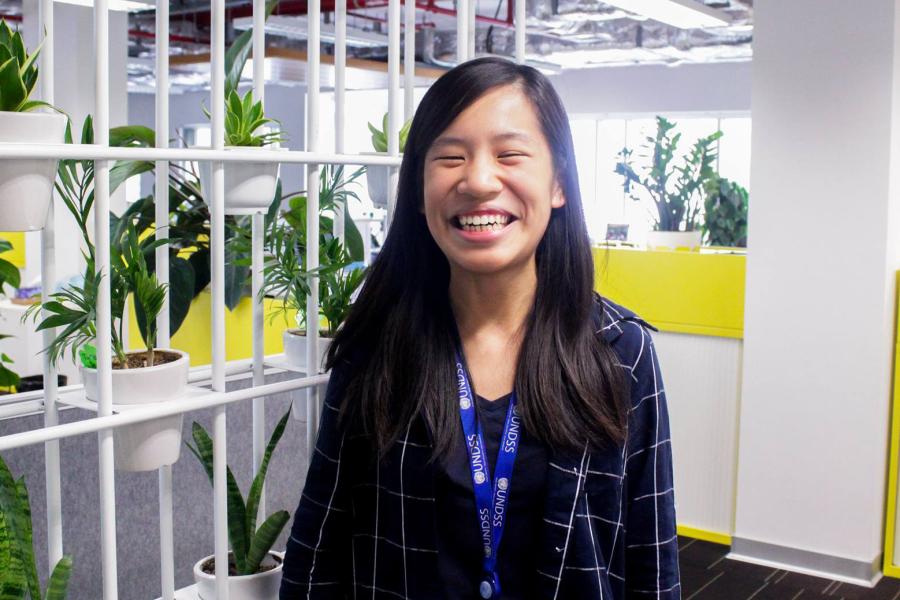
When I greet different people, I try to show my sincere smile, not a formal or business smile for the sake of greeting people. I’m trying to let them know that I care about them even though we don’t have a lot of common topics to share, maybe we just talk about small things about our daily life. And I think those small interactions can influence people around you. Just like when I needed to get along with my colleagues at first, they might find me maybe like: “Oh this girl doesn’t speak Vietnamese and we don’t know about her characteristics.” They may not feel open up to you. Maybe day by day, starting with sayinggoodbye after work, then I started to ask: “How was your work today?” or if they were busy, I ask: “Oh, why do you stay this late?” and afterwards theywould try to tell you about what they are doing and start listening to you. Then we get closer and time builds up trust. When you try to expand your circle, interacting with different people around, you can feel the connection between you and society, and then you start building a caring mind to every individual. I think this is the most important mindset to work in the UN – to care for the human and the community. When you start to care about the lives of the others or the community, you can see the problems; then, you start questioning: “Why do those problems occur?” and next you will see how we can intervene and do something.
Sean O'Connell, IUNV Anti-Corruption, Rule of Law and Human Right Officer, UNDP Viet Nam
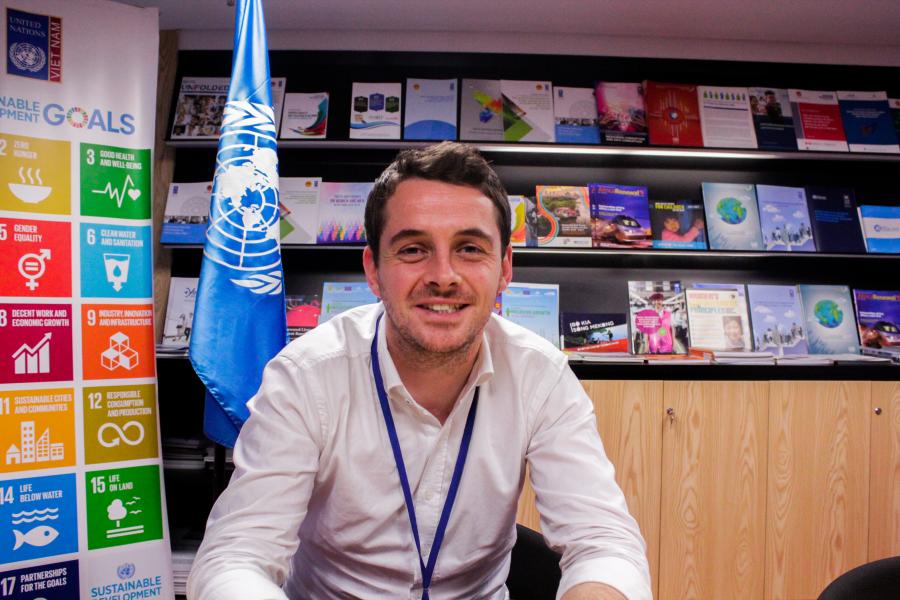
Monitoring and evaluation is incredibly important and I can see the impact of it even in the process of sitting down and thinking about what our impact has been, what to do with the next project, how to achieve the desired outcomes, and makes you do it more methodically, focus on what the real impact is going to be. Having said that I find it quite challenging to adapt to the level of reporting. It’s quite demanding but I understand how important it is; nevertheless, it is very difficult to balance your time between implementing projects and reporting on them. So I rely a lot on my colleagues. I’m very lucky that I am part of a great team and my colleagues always help me, guide me, even directly assist me by providing inputs in reporting and monitoring. You get to find the synergy, to complement each other, and reap the maximum benefits of teamwork. It’s definitely the people you work with that can really enhance our impact on people’s lives.
Clement Gba - UN Viet Nam Manager for Common Services & Business Operations
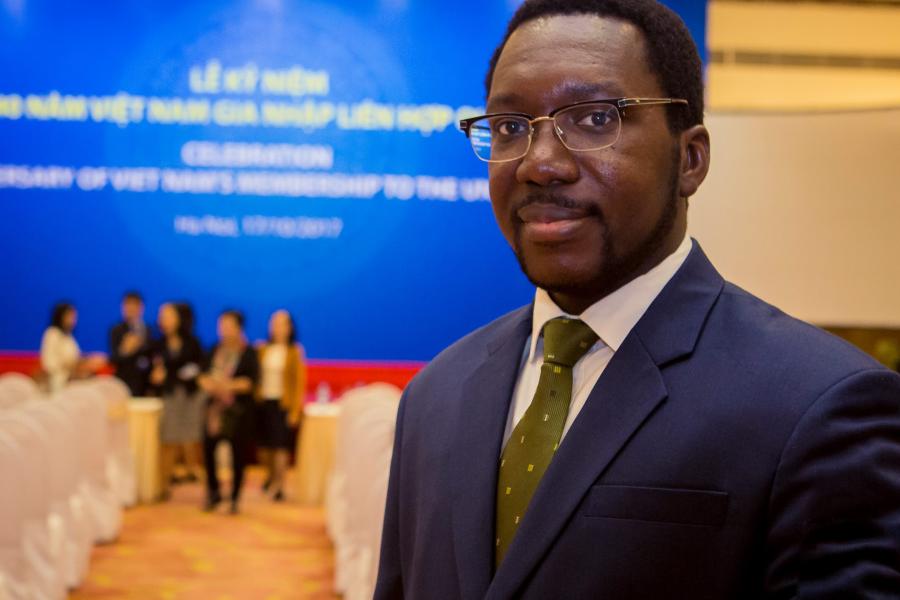
I recall some time back when I was in the UN Headquarter in New York, my job was mainly to support crisis-affected countries programmes, and required frequent travels to assist our operations – leaving my family behind, sacrificing some precious moments with the family.
Beside my own story, I think of our colleagues in the very dangerous fields of operations; I’m sure you hear about the UN Staffs who have lost their lives in serving the people we are devoted to.
Well aware of the risks and consequences of our jobs, we are still committed to it because WE LOVE WHAT WE DO!
As for me, my biggest asset is my family – this is the anchor in which I get comforted and resourced to give more to the organization that serves PEOPLE.
The UN is not only a community of workers, we are also friends, so we share good time together. I think it is the best place to work.

